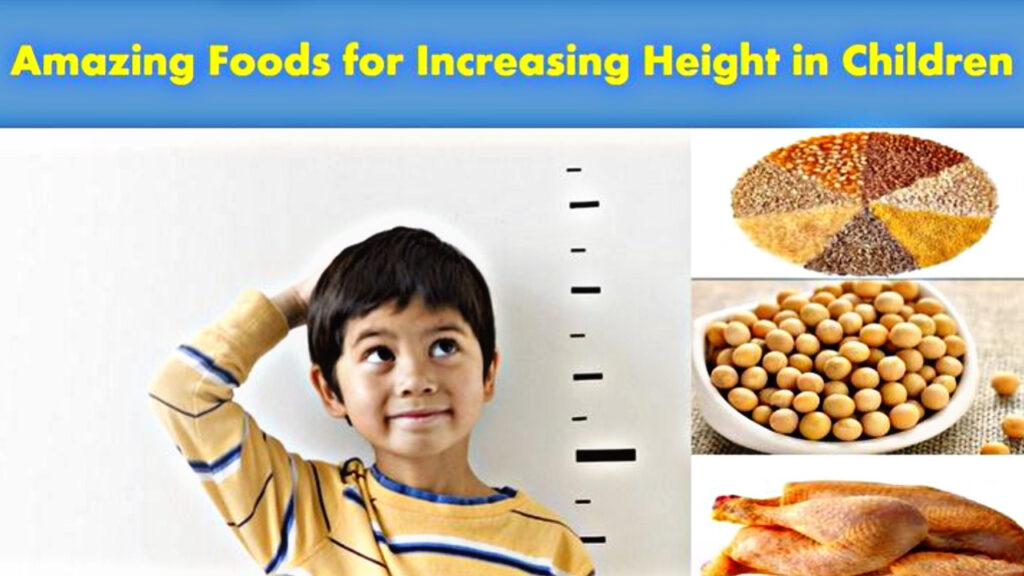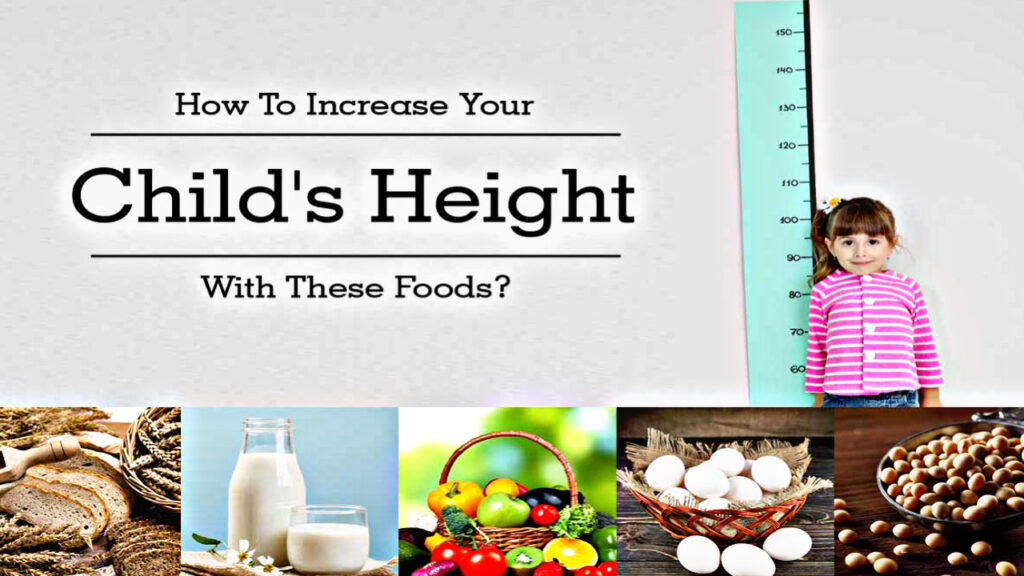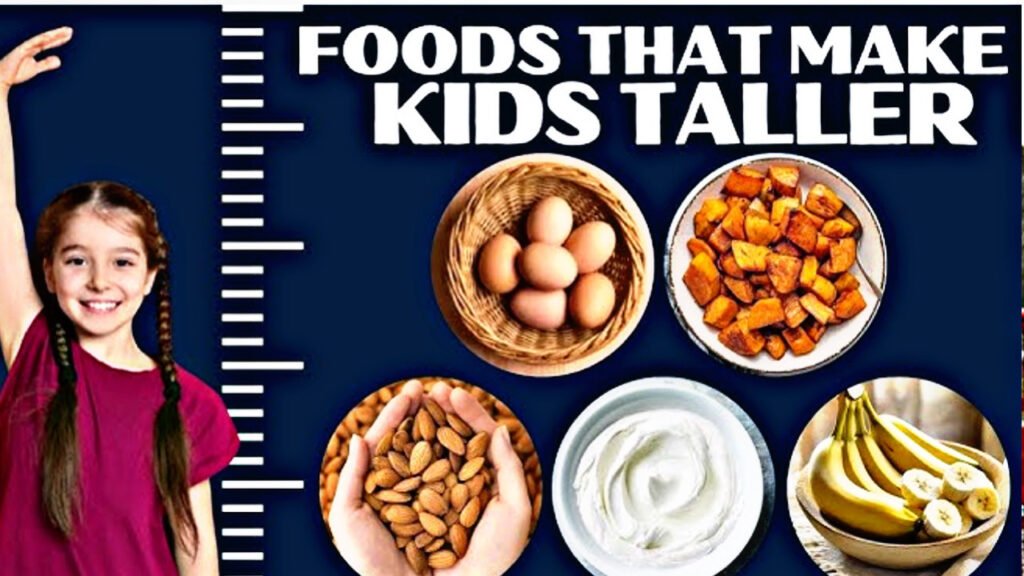Health
Height is largely determined by genetics, but nutrition plays a key role in helping children reach their maximum potential height. A balanced, nutrient-rich diet during the growing years is essential to support bone development, muscle growth, and overall health. If you’re a parent looking to help your child grow taller naturally, it’s important to include the right foods in their daily meals. Here’s a detailed guide on what should be part of a child’s diet to support healthy height growth.

1. Protein-Rich Foods
Protein is essential for the growth and repair of tissues. It plays a critical role in building muscles, bones, and hormones that contribute to growth.
- Sources: Eggs, milk, yogurt, cheese, lentils, beans, soy products, chicken, fish, nuts, and seeds.
- Tip: Include at least one high-protein food in every meal.
2. Calcium and Vitamin D
Calcium strengthens bones, while Vitamin D helps the body absorb calcium efficiently. A deficiency in either can lead to poor bone development.
- Sources of Calcium: Milk, cheese, yogurt, tofu, almonds, sesame seeds, green leafy vegetables.
- Sources of Vitamin D: Sunlight is the best source, along with eggs, fortified milk, and fatty fish like salmon and mackerel.
3. Zinc and Iron
These trace minerals are often overlooked but play a key role in growth. Zinc helps in tissue growth and repair, while iron is essential for transporting oxygen in the blood.
- Sources of Zinc: Pumpkin seeds, peanuts, cashews, dairy products, and legumes.
- Sources of Iron: Spinach, red meat, lentils, fortified cereals, and raisins.
4. Complex Carbohydrates

Carbohydrates provide the energy that growing children need. Avoid processed sugars and focus on whole grains and complex carbs for sustained energy.
- Sources: Brown rice, whole wheat bread, oats, sweet potatoes, quinoa, and legumes.
5. Healthy Fats
Fats are essential for hormone production and brain development, both of which are important for overall growth.
- Sources: Avocados, nuts, seeds, olive oil, and fatty fish.
6. Fresh Fruits and Vegetables
Fruits and vegetables are packed with essential vitamins, minerals, fiber, and antioxidants. They support digestion, boost immunity, and ensure proper nutrient absorption.
- Good Choices: Carrots, broccoli, oranges, papaya, berries, spinach, and bell peppers.
7. Water and Hydration

Staying hydrated helps in nutrient absorption and supports metabolic activities. Encourage children to drink enough water throughout the day, especially if they are active.
Additional Tips to Support Height Growth
- Regular Exercise: Activities like swimming, cycling, jumping rope, and stretching exercises help stimulate growth hormones.
- Adequate Sleep: Children should get at least 9–11 hours of sleep, as growth hormone is mostly released during deep sleep.
- Limit Junk Food: Processed and sugary foods can interfere with nutrient absorption and should be limited.
While you can’t change your child’s genetics, you can ensure they get the best possible nutrition to support their natural growth. A diet rich in proteins, calcium, vitamins, and minerals, along with regular exercise and proper rest, can help them achieve their maximum height potential. Always consult a pediatrician or nutritionist for personalized advice, especially if you have concerns about your child’s growth.





